- Home
- Steven Brust
Vallista--A Novel of Vlad Taltos
Vallista--A Novel of Vlad Taltos Read online
Begin Reading
Table of Contents
About the Author
Copyright Page
Thank you for buying this
Tom Doherty Associates ebook.
To receive special offers, bonus content,
and info on new releases and other great reads,
sign up for our newsletters.
Or visit us online at
us.macmillan.com/newslettersignup
For email updates on the author, click here.
The author and publisher have provided this e-book to you without Digital Rights Management software (DRM) applied so that you can enjoy reading it on your personal devices. This e-book is for your personal use only. You may not print or post this e-book, or make this e-book publicly available in any way. You may not copy, reproduce, or upload this e-book, other than to read it on one of your personal devices.
Copyright infringement is against the law. If you believe the copy of this e-book you are reading infringes on the author’s copyright, please notify the publisher at: us.macmillanusa.com/piracy.
For Matt
ACKNOWLEDGMENTS
Emma Bull, Pamela Dean, Will Shetterly, Adam Stemple, and Skyler White are the main people who pointed out where inside the vaguely shaped lump of marble an actual book was concealed. Alexx Kay once again helped me keep my chronology straight, and all of those who update Lyorn Records helped yet again. Thanks to editor Teresa Nielsen Hayden, to Irene Gallo and her Poignant Proletarians of Production, Anita Okoye for editorial handholding, and copy editor Rachelle Mandik. I must also thank my friend Brian Murphy, because reasons.
Additional copyediting and proofreading by sQuirrelco Textbenders, Inc.
Part One
ANALYSIS
1
DEVERA THE WANDERER
It is a truth universally acknowledged, that a human assassin in possession of an important mission must be in want of a target. I found mine in South Adrilankha, the Easterners’ quarter, in a district called Heart’s Road. I always wonder where those names come from, you know? Maybe someone cut someone’s heart out and it went rolling down the street. More likely it was named for some Lord Heart who owned a vacant lot there once, but I like my version. Anyway, that’s where I was, in the open-air market just past where the Tinsmiths’ Guild used to be.
I’d been on the run for several years at this point, and spent most of my time looking over my shoulder; but I’d managed to find an old friend of my grandfather’s who had let me stay with him for a couple of weeks in exchange for certain services. There were few services I’d have refused if it meant not living in flophouses for a few days, so I agreed at once. All of which brought me to a small circular market in the ghetto, where, as I said, I found my target.
She was an Easterner, of course—or human, if you prefer. A shriveled old woman, dressed in garish purple and wearing a silverite necklace with clamshells. Loiosh, my familiar, spotted her first, and said into my mind, “There, Boss. No, further to the right.”
I didn’t approach her directly; I walked around the edge of the crowd that had gathered to watch the antics of a fat man and his squirrel, and studied her from thirty feet away. She stood behind a long table; at her back was a small wagon. There were no signs of draft animals.
I watched for about ten minutes, because you need to get a good feel for your target. A few people would approach her, speak, and leave; once in a while someone would buy something. Eventually, I strolled up as if I just happened to be going by.
I let my eyes shift, and I stopped, as if something had just accidentally caught my attention. She looked at me, a little wary, a bit interested.
“Well,” I said. I gestured with my chin. “That looks like a javorn sausage.”
“It is,” she said, her voice neutral.
I nodded and started to move past. Stopped. “Haven’t had that in a while,” I allowed. “How much?”
“Sixteen,” she said.
I chuckled. “No, seriously. How much?”
She scowled at me. “That is my own work. Hours of time, mixing, measuring, securing the freshest seasonings. Sixteen is a bargain. Though because I have a weakness for witches, you can have it for fifteen, and you’ll owe me a spell sometime.”
“How do you know I’m a witch?”
She snorted and repeated, “Fifteen.”
“Yeah,” I said. “I was thinking maybe six.”
“Six,” she said. “Unless you’re speaking of six silver, you are insulting me. The recipe for this sausage has been passed down in my family for nineteen generations. I will not offend the memory of my ancestors by selling it for less than fourteen.”
“All right,” I said. “Eight, then. But you’re robbing me.”
She sighed. “Very well, twelve. Though I don’t know why I should. I grow the marjoram in my own garden, and I use only the illataakertben Eastern red pepper, imported by a secret supplier who disdains any but the very finest, then dries and grinds it himself. But you seem nice, if cheap, so you can have it for eleven.”
“I am cooking a meal for a friend who has done me a kindness. A penny more than nine, and I’ll be unable to purchase anything else to go with it.”
“Nonsense,” she said. “Sell those fancy boots. Or the cloak. Or the sword. Why do you need a sword? We’re peaceful here, and you have those for protection should you accidentally walk somewhere you shouldn’t.” Here she gestured at Loiosh and Rocza, perched on my shoulders. Then she added, “I will go to ten, but no further.”
I sighed. “Ten then, but only because you’re so beautiful.”
“Hah,” she said. “For that, I’ll throw in an onion.”
I smiled. “Thank you,” I said.
She wrapped up the sausage and the onion, and sent me on my way.
It isn’t that I needed the money, or begrudged it to her, but haggling with the sausage maker is part of any recipe for javorn sausage, and who am I to buck tradition?
When I got to the house, I fired up my host’s stove, then unfolded the stove cover and put a pan on it to get hot. I sliced the sausage, browned it in goose fat with the onion, garlic, flathat mushrooms, and four kinds of peppers. I served it over toasted edesteszta bread. My host said kind things about it. His name was Imry. He had almost no hair, but nearly all of his teeth, and he moved fast for his age, though he couldn’t seem to entirely straighten up. The point is, it was really good, and it was the last good meal I had for some time.
While I was there, I filled him in on my recent history—you know, offending the Jhereg, being chased by assassins, acquiring a Great Weapon, that stuff. He didn’t seem all that interested. As we ate, he told me about his neighbors in great detail. Not complaining, for the most part, just telling me what they were like, and what they talked about, ate, and did for a living. It wasn’t all that exciting, but after the last few years I didn’t mind a little boredom. He eventually started reminiscing about my grandfather. I liked that better. Apparently, when he was young, my grandfather had made most of the mistakes apprentice witches make, with occasionally dangerous and sometimes hilarious results. I also learned that my grandfather had once been a great cusser, being well versed in obscenity, profanity, scatology, and curses in at least nine languages. I liked the stories, but I’d never tell my grandfather I’d heard them.
After we ate, Loiosh and Rocza had some of the scraps while I cleaned the dishes; it was the least I could do and it killed some time. These days, time was mostly what I was killing, and I was all right with that.
The next morning we broke our fast with the leftovers, which I warmed in bacon fat along with the bread. We sat around and drank coffee, because he didn’t know how
to make klava and I didn’t want to insult him by offering to teach him, talking about nothing in particular, when there was a clap at the door.
I stood up and grabbed my sword belt from the chair, and strapped it on. Lady Teldra and my rapier went on my left side, my knife on the right, and I took a step toward the door.
“What was that?” said my host.
“A Dragaeran,” I said. “An ‘elf.’ They clap instead of knocking.”
“Why would a—oh,” he said. Then he got up and reached behind his chair, came up with a heavy club.
“No,” I said. “If it’s trouble, let me—”
He suggested I stop speaking, using language I had never heard from my grandfather.
The clapping sound was repeated.
I gave up on trying to stop him, but I at least beat him to the front door. I took a step to the side and gestured for him to get behind me. Then I took a deep breath and opened the door.
On the other side was what appeared to be a little girl.
“Hello, Uncle Vlad,” she said.
“Hello, Devera,” I said after a moment, when I found my voice again. “Uh, would you care to come in?”
She shook her head. “Oh, I mustn’t. Can you come out?”
Her wanting me to step outside made me check the area behind her for places an assassin might be hiding; but that was just an instinctive reaction. Devera wouldn’t be out to hurt me. She was—
She was—
She was not a normal child. I’d met her a couple of times, and seen her a few more. Some of those times might not have been real. She was kind of like that. It says something, I suppose, that it never occurred to me until now, as I tell this, to wonder how she’d found me. Anyone else, anyone, that would have been my second question, right after Am I about to die? But with her, I don’t know, I just accepted it.
I started to walk out, hesitated, then said, “One moment.” I went back in.
Imry said, “What is it?”
“A friend,” I said, which was true, I think, sort of. I threw on my cloak and said, “Thanks for everything,” then stepped outside and closed the door.
We took a couple of steps into the stench of South Adrilankha and she said, “It’s going to rain. We should hurry.”
I looked up. The sky was the same orange-red it always was, but I didn’t doubt her. “Where are we going?”
Any answer she might have given was drowned out by a truly impressive crack of thunder, followed almost immediately by a torrent of water from the sky that would have soaked me in as much time as it took to draw a breath, except that Devera made a gesture with her hand, and we found ourselves in a sort of bubble of dryness. If I hadn’t been wearing the amulet, I could have done that. Maybe not that fast.
But it was a remarkable downpour. Adrilankha is usually kind and not very interesting when it comes to weather, certainly when compared to somewhere like Candletown, but every once in a while she reminds you that she’s on the coast, when big storms that begin out on the ocean-sea roll into port like a skybender loaded with pandemonium. The wind bent the thinner trees and stripped branches off the thicker ones, while houses vanished in the deluge. Whatever Devera had done protected us from the wind, too, or we wouldn’t have been able to stand.
“See?” she said. “It’s raining.”
“I guess,” I said. “Where are we going?”
“Follow me.” And she took off down the street, giving me the choice of staying with her or becoming very, very wet. I followed, and wondered. Was she doing something for me? Did she want my help? She looked like a kid, and more often than not, she acted like one. But was she just playing at it, knowing that looking and acting like that could get her what she wanted, or was she just what she seemed? Which was weird enough, for all love. I hadn’t made up my mind. Her mother, Aliera e’Kieron, was the daughter of the goddess Verra and Adron e’Kieron, who was a sorcerer so powerful he, like, destroyed the Empire. And Aliera was friends with Sethra Lavode, the most powerful sorcerer, well, ever, and also a friend of Morrolan e’Drien, who was at least as good a witch as me. My point is, what could I do for her that they couldn’t?
I had no idea, so I just went with it, protected from a truly impressive rainstorm by her magical bubble. I didn’t figure anything out there that couldn’t swim would survive.
“Hey, Loiosh, why don’t you fly around and—”
“I will bite you, Boss. You know that.”
“Heh-heh.”
Devera led, I followed. We made it to the paved roads before the mud made it impossible to walk, and then we were stepping around puddles, and then there was no place to step around them, so we were wading through them. At one point, she jumped up in the air and came down and made a splash. Then she stopped and looked guiltily at me as the water soaked through my shirt and trousers. “I’m sorry.”
“It’s all right,” I said, and we continued.
It would have been a strange walk in anyone’s company. The rain continued all around us, making the edges of everything fuzzy and indistinct. It was like walking through a different world, one where the world I knew was nearby, but disconnected. I wasn’t worried about anyone taking a shot at me, because I couldn’t imagine anyone finding me in all of this. Okay, that’s not true; I was still worried, because it had become a habit, but I was aware of how irrational it was. We didn’t see another soul in all of South Adrilankha. Loiosh and Rocza rode quietly on my shoulders.
And it went on and on.
We reached the Stone Bridge, crossed it, and made our way through the City—the area where Dragaerans lived—but we still saw no one. It was kind of creepy.
Hours passed, I think. If you’ve ever wondered how long it takes to go, on foot, from one end of Adrilankha to the other, I can confidently tell you that it feels like a long time. As we left the City, going west along Kieron Road, the ground started rising, and the water came gushing down in thick, heavy streams, threatening to carry us away with them if we strayed into the deeper water near the gutters. At last, we came to a place way out west beyond the City. The cliffs were about fifty yards to my left. The ground was rising more sharply now. I’d been here, but not often, and not recently.
“Devera, where are we going?” I asked again.
“Come on,” she said, giving as responsive an answer as her mother might have. I followed her up the road.
When we reached the top of a rise, I recognized exactly where we were; very close to Kieron’s Watch itself—a place with all kinds of history for Dragaerans, and where there’d once been an outlook over the ocean-sea. What I didn’t recognize was an immense structure just off the road, right up to the edge of the cliff. A few years before, last time I came this way, it hadn’t been there. I’m sure of that. I remembered walking along here as I left the City, hoping I had enough of a head start on those who wanted to kill me, and that I’d be able to find a place to hide. The structure hadn’t been there.
It was big, and the pure white of marble, and had graceful, swooping curves along the roof. It towered over me and was very impressive. There was a line of glass windows that I could just see on the side facing the ocean-sea, and a large double door facing the road. I hadn’t heard any thunder for a while. The rain had eased up a little, but was still coming down hard.
“In there?” I said.
Devera nodded.
“What’s in there?”
“Hurry,” she said, and ran ahead of me to the door, where she turned and waited, looking at me with big, brown eyes.
“Boss,” said Loiosh into my mind.
“Yeah?”
“This seems like a bad idea.”
“Yeah.”
“Devera,” I said. “What is this about?”
“I need your help, Uncle Vlad,” she said. I walked up to the door. There was a large carving of a vallista, half on either side. Those things always make me think of insects. I mean, I know they aren’t, but something about the four legs plus two little arms thing s
eems insectoid. I’d seen one once, briefly, in the jungle, and it had moved very fast—just a sort of yellowish-red flash, and that weird prehensile tail. I’d never looked at one up close, though. And I didn’t want to now. I looked for a clapper next to the door, didn’t see one, glanced at Devera, shrugged, and clapped. No surprise: nothing happened.
“Well, that’s that,” said Loiosh. “Let’s go.”
“Seriously, Loiosh. Has that ever worked? Can you imagine me turning and leaving now?”
“Of course not. I just want to be able to say I told you so.”
Devera giggled. I glanced at her and started to ask, but then decided I didn’t want to know.
I tried the doors. They opened.
Devera walked inside and I followed her into a wide hallway, with an arched doorway about twenty feet ahead. She took three steps toward it and vanished.
The doors closed behind me with a thump, followed by a click so loud it was more of a clunk. The echo of that sound came back like it was trying to send a message. Bugger messages.
“So—”
“Shut up, Loiosh.”
It was surprisingly warm; I wasn’t shivering, in spite of my wet clothing.
I turned back to face the double doors. I wouldn’t have bothered to try them, if it wasn’t for how stupid I would have felt if they hadn’t been locked. They were locked. I studied the lock, and, yeah, it looked tough. I spent a little time on it, even playing around a bit with my heaviest lockpick, and the mechanism was either very tough indeed, or broken. Or, of course, there may have been sorcery involved; let us never forget that possibility. I’ve managed a few times to take doors off their hinges in cases like this, but unfortunately these hinges were set too far into the wall. Well, all right, then. While Kiera the Thief could probably have opened it easily, I’d have to use brute force, and it would take a while and still might not work. I mentally shrugged and turned my back to the hallway.
“Are you going to try to find Devera, Boss?”

 Phoenix
Phoenix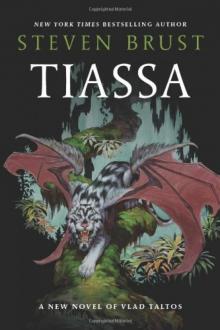 Tiassa
Tiassa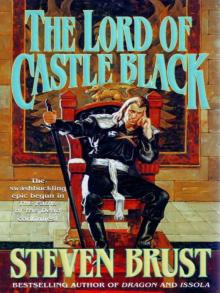 The Lord of Castle Black
The Lord of Castle Black To Reign in Hell: A Novel
To Reign in Hell: A Novel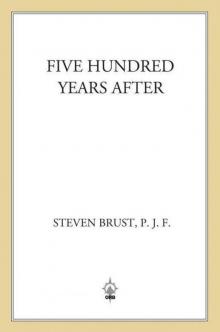 Five Hundred Years After (Phoenix Guards)
Five Hundred Years After (Phoenix Guards)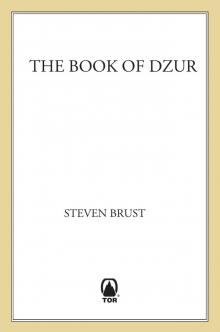 The Book of Dzur: Dzur ; Jhegaala
The Book of Dzur: Dzur ; Jhegaala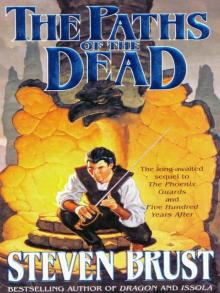 The Paths of the Dead
The Paths of the Dead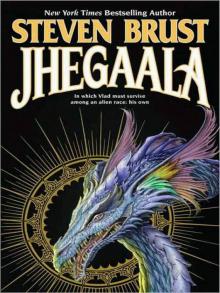 Jhegaala
Jhegaala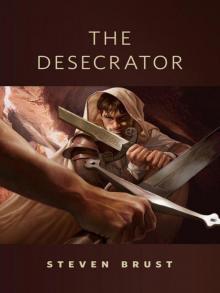 The Desecrator: A Tor.com Original
The Desecrator: A Tor.com Original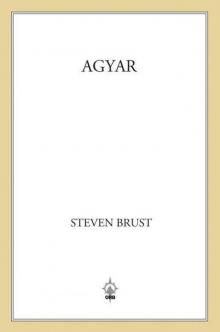 Agyar
Agyar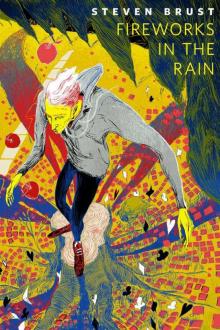 Fireworks in the Rain
Fireworks in the Rain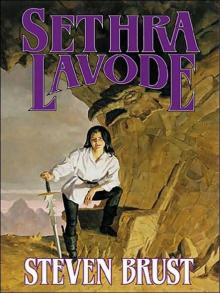 Sethra Lavode
Sethra Lavode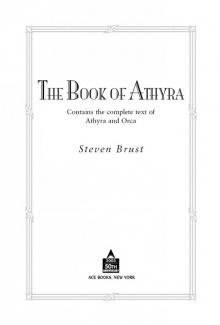 The Book of Athyra
The Book of Athyra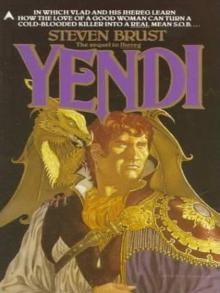 Yendi
Yendi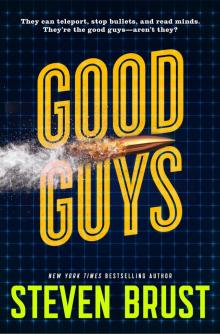 Good Guys
Good Guys The Book of Jhereg
The Book of Jhereg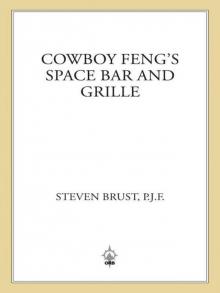 Cowboy Feng's Space Bar and Grille
Cowboy Feng's Space Bar and Grille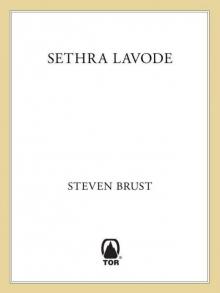 Sethra Lavode (Viscount of Adrilankha)
Sethra Lavode (Viscount of Adrilankha) My Own Kind of Freedom
My Own Kind of Freedom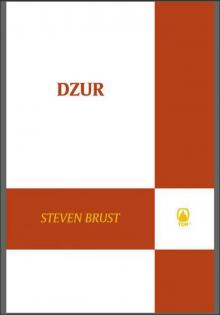 Dzur (Vlad Taltos)
Dzur (Vlad Taltos)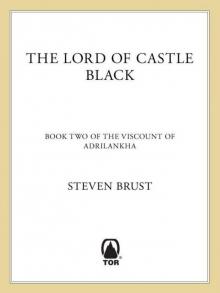 The Lord of Castle Black: Book Two of the Viscount of Adrilankha
The Lord of Castle Black: Book Two of the Viscount of Adrilankha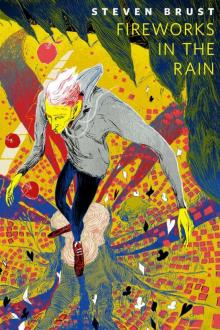 Fireworks in the Rain: A Tor.Com Original
Fireworks in the Rain: A Tor.Com Original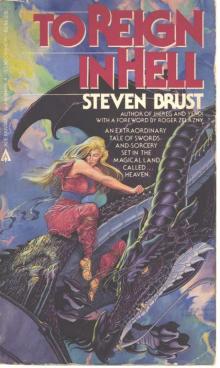 To Reign In Hell
To Reign In Hell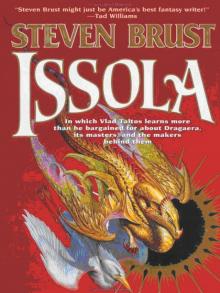 Issola
Issola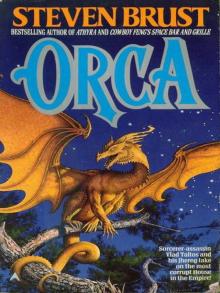 Orca
Orca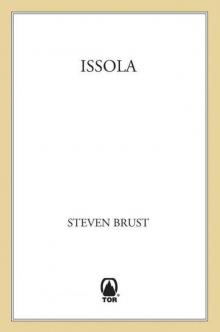 Issola (Vlad Taltos)
Issola (Vlad Taltos)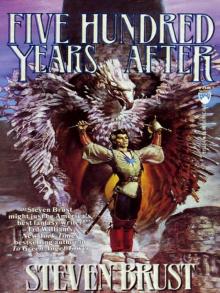 Five Hundred Years After
Five Hundred Years After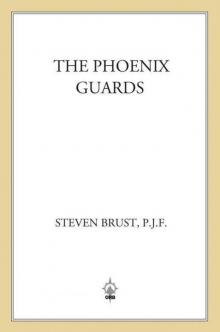 The Phoenix Guards
The Phoenix Guards Taltos
Taltos![[Vlad Taltos 06] Athyra Read online](http://i1.bookreadfree.com/i1/03/24/[vlad_taltos_06]_athyra_preview.jpg) [Vlad Taltos 06] Athyra
[Vlad Taltos 06] Athyra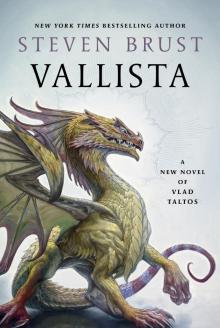 Vallista--A Novel of Vlad Taltos
Vallista--A Novel of Vlad Taltos The Incrementalists
The Incrementalists![[Vlad Taltos 04] Taltos Read online](http://i1.bookreadfree.com/i/03/24/[vlad_taltos_04]_taltos_preview.jpg) [Vlad Taltos 04] Taltos
[Vlad Taltos 04] Taltos![[Vlad Taltos 03] Teckla (v 1.1) Read online](http://i1.bookreadfree.com/i1/03/27/[vlad_taltos_03]_teckla_v_1_1_preview.jpg) [Vlad Taltos 03] Teckla (v 1.1)
[Vlad Taltos 03] Teckla (v 1.1) The Book of Taltos
The Book of Taltos The Paths of the Dead (Viscount of Adrilankha)
The Paths of the Dead (Viscount of Adrilankha)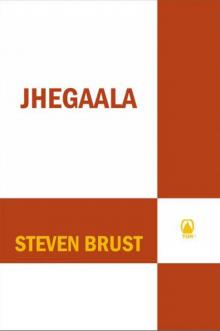 Jhegaala (Vlad Taltos)
Jhegaala (Vlad Taltos)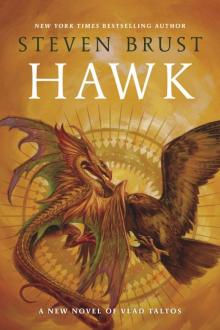 Hawk (Vlad)
Hawk (Vlad)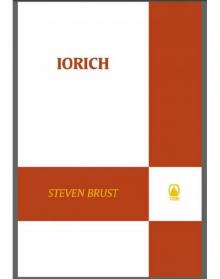 Iorich
Iorich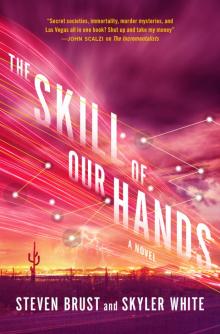 The Skill of Our Hands--A Novel
The Skill of Our Hands--A Novel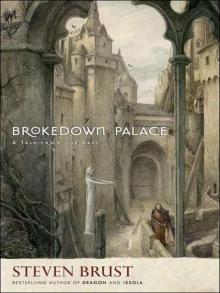 Brokedown Palace
Brokedown Palace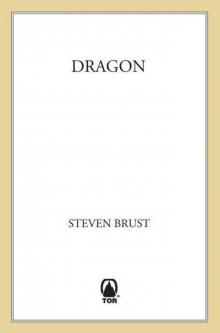 Dragon (Vlad Taltos)
Dragon (Vlad Taltos) Dragon
Dragon Athyra
Athyra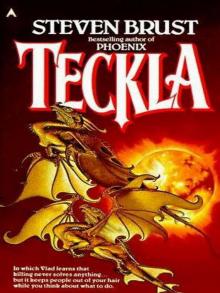 Teckla
Teckla Dzur
Dzur